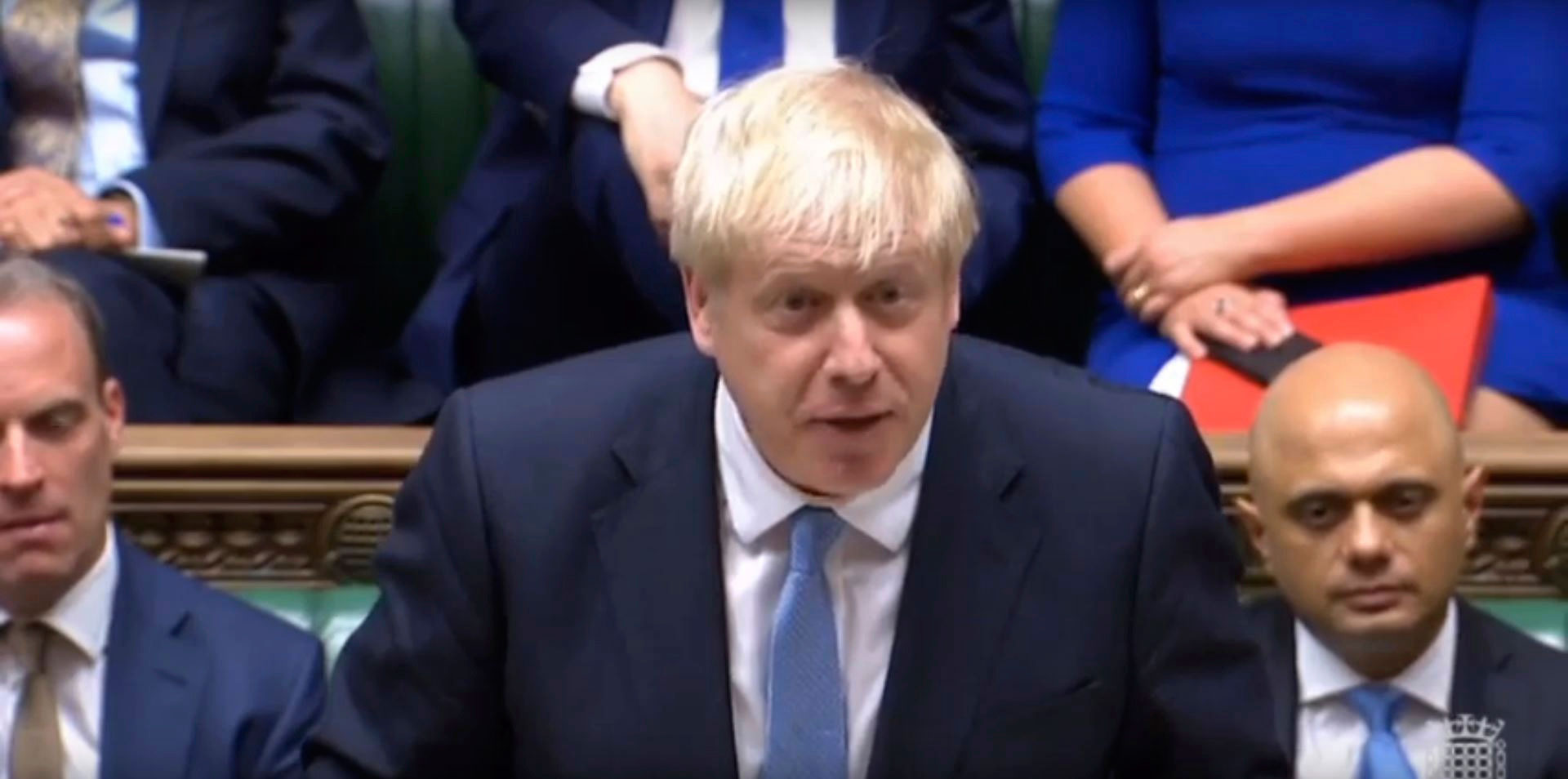Speculation is mounting among political analysts in the UK that Boris Johnson will have no option but to call an early general election because he does not have the numbers to get a no deal Brexit through the House of Commons by the October 31 deadline to which he has committed himself.
Cheered by the Tory MPs, he gave a bravura performance when he made his debut at the despatch box at the Commons on Thursday as Britain’s new Prime Minister.
Meanwhile, his predecessor, Theresa May, looked relaxed sipping a cold drink as she watched the England-Ireland Test match at Lord’s.
Boris received congratulations from Narendra Modi, who said: “I wish you success and look forward to working with you to further strengthen India — UK partnership in all spheres.”
The two men have met before when Boris was foreign secretary. The one who could also have had an in-depth chat with but chose not to do when he was mayor of London was the West Bengal chief minister Mamata Banerjee when she was visiting London in June 2015. He said he was free only in the morning while Mamata, who apparently refused to budge, insisted it should in the afternoon.
As Boris entered 10 Downing Street on Wednesday, he breached protocol by revealing something the Queen had said to him: “ ‘I don’t know why anyone would want the job.’” He is her 14th Prime Minister.
Asked if Downing Street was preparing for a general election, former party leader Iain Duncan Smith, who backed Boris in the Tory leadership campaign, told the BBC Radio 4’s Today programme: “Any government worth its salt would prepare for that eventuality. But the truth is I doubt whether my party will call for an election prior to the 31st.”
However, an article in the Daily Telegraph urged Boris to call a snap general election now rather than after October: “Until Brexit is resolved it is impossible to move forward with any other policy. In fact, until there is a new parliament nothing at all can happen.
“Boris has a working majority of three even with the DUP and that will be virtually erased if the Tories lose Brecon and Radnorshire in next week’s by-election. Talk of his team busily preparing a Queen’s Speech and a Budget is for the birds since neither would pass this House.
“That is why an election is essential.”
In the Commons, Boris threw a challenge to the EU by declaring it would have to change the withdrawal agreement negotiated by May because it had been rejected three times by the Commons. The Irish “back stop” would have to go, said Boris, even though the EU has said the withdrawal agreement, of which the backstop is an essential part, is not up for renegotiation.
“I would prefer us to leave the EU with a deal — I would much prefer it,” Boris began.
“I believe that it is possible even at this late stage and I will work flat out to make it happen. But certain things need to be clear. The withdrawal agreement negotiated by my predecessor has been three times rejected by this House. Its terms are unacceptable to this parliament and this country.”
He said the government was ready to meet EU officials “whenever, wherever” to try and get a deal, stating: “I hope that the EU will be equally ready and that they will rethink their current refusal to make any changes to the withdrawal agreement. If they do not, we will, of course, have to leave — the UK — without an agreement under Article 50. The UK is better prepared for that situation than many believe.
“Our mission is to deliver Brexit on October 31 for the purpose of uniting and re-energising our great United Kingdom and making this country the greatest place on earth,” he said.
Referring to a possible no-deal exit from the EU at the end of October, Boris said: “In the 98 days that remain to us we must turbo-charge our preparations to make sure that there is as little disruption as possible to our national life.
“In these circumstances we would, of course, also have available the £39 billion in the withdrawal agreement to help deal with any consequences.”
This last comment will further enrage the EU.
In many ways, Boris will be more to the India’s taste than his predecessor, especially after his inclusion of three Indian-origin cabinet ministers.
The Indian government will note that he promised to bring in a point-based immigration system. “No-one believes more strongly than me in the benefits of migration to our country. But I am clear that our immigration system must change. For years, politicians have promised the public an Australian-style points based system.”











